对于mysql的query_cache认识的误区
- 高洛峰原创
- 2016-12-22 15:30:271155浏览
其实,这一种说法是不完全正确的。首先第一点,mysql的query_cache的键值并不是简单的query,而是query加databasename加flag。这个从源码中就可以看出。在这里不做重点描述,后续可以针对于这一点再具体分析。重要的是第二点,是不是加了空格,mysql就认为是不同的查询呢?实际上这个是要分情况而言的,要看这个空格加在哪。 如果空格是加在query之前,比如是在query的起始处加了空格,这样是丝毫不影响query cache的结果的,mysql认为这是一条query, 而如果空格是在query中,那会影响query cache的结果,mysql会认为是不同的query。
下面我们通过实验及源码具体分析。首先,我们先试验一下:
首先,我们看一下mysql query_cache的状态:
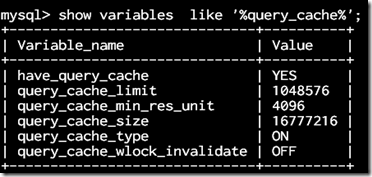
首先,我们可以确认,mysql的query_cache功能是打开的。
其次,我们看一下状态:
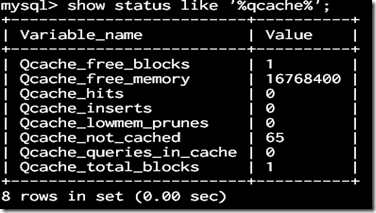
因为这个db是新的db,所以hits,inset都为0,现在我们执行一条select语句:
状态变为:
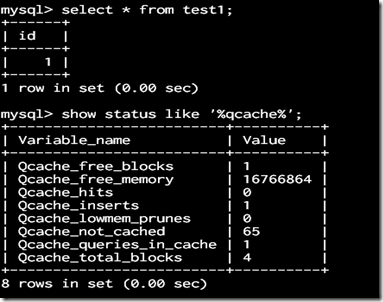
可以看到,执行一条select后,现在的qcache状态为,insert+1,这样我们就可以推断出,现在刚才那条select语句已经加入了qcache中。那我们现在再将刚才那条sql前面加上空格,看看会怎样呢?
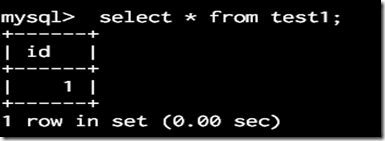
请注意,这条sql,比刚才那条sql前面多了一个空格。
按照网上的理论,这条sql应该会作为另一个键而插入另一个cache,不会复用先前的cache,但结果呢?
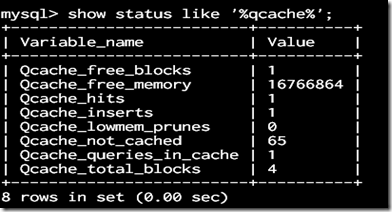
我们可以看到,hits变为了1,而inserts根本没变,这就说明了,这条在前面加了空格的query命中了没有空格的query的结果集。从这,我们就可以得出结论,网上先前流传的说法,是不严谨的。
那究竟是怎么回事呢?到底应该如何呢?为什么前面有空格的会命中了没有空格的query的结果集。其实,这些我们可以通过源码获得答案。
翻看下mysql的源码,我这翻看的是5.1的,在send_result_to_client(这个函数既是mysql调用query_cache的函数)这个函数里面有这样一段,这段代码,、
/*
Test if the query is a SELECT
(pre-space is removed in dispatch_command).
First '/' looks like comment before command it is not
frequently appeared in real life, consequently we can
check all such queries, too.
*/
if ((my_toupper(system_charset_info, sql[i]) != 'S' ||
my_toupper(system_charset_info, sql[i + 1]) != 'E' ||
my_toupper(system_charset_info, sql[i + 2]) != 'L') &&
sql[i] != '/')
{
DBUG_PRINT("qcache", ("The statement is not a SELECT; Not cached"));
goto err;
}是在检验语句是否为select语句,重点是上面那段注释。特别是括弧中的,pre-space is removed in dispatch_command,也就是说,在语句开始之前的多余的空格已经被处理过了,在dispache_command这个函数中去掉了。
我们看下dispache_command这个方法,在这个方法里有这样一段:
if (alloc_query(thd, packet, packet_length)) break; // fatal error is set char *packet_end= thd->query() + thd->query_length(); /* 'b' stands for 'buffer' parameter', special for 'my_snprintf' */ const char* end_of_stmt= NULL;
在这里,会调用alloc_query方法,我们看下这个方法的内容:
bool alloc_query(THD *thd, const char *packet, uint packet_length)
{
char *query;
/* Remove garbage at start and end of query */
while (packet_length > 0 && my_isspace(thd->charset(), packet[0]))
{
packet++;
packet_length--;
}
const char *pos= packet + packet_length; // Point at end null
while (packet_length > 0 &&
(pos[-1] == ';' || my_isspace(thd->charset() ,pos[-1])))
{
pos--;
packet_length--;
}
/* We must allocate some extra memory for query cache
The query buffer layout is:
buffer :==
<statement> The input statement(s)
'\0' Terminating null char (1 byte)
<length> Length of following current database name (size_t)
<db_name> Name of current database
<flags> Flags struct
*/
if (! (query= (char*) thd->memdup_w_gap(packet,
packet_length,
1 + sizeof(size_t) + thd->db_length +
QUERY_CACHE_FLAGS_SIZE)))
return TRUE;
query[packet_length]= '\0';
/*
Space to hold the name of the current database is allocated. We
also store this length, in case current database is changed during
execution. We might need to reallocate the 'query' buffer
*/
char *len_pos = (query + packet_length + 1);
memcpy(len_pos, (char *) &thd->db_length, sizeof(size_t));
thd->set_query(query, packet_length);
/* Reclaim some memory */
thd->packet.shrink(thd->variables.net_buffer_length);
thd->convert_buffer.shrink(thd->variables.net_buffer_length);
return FALSE;
}这个方法在一开始就会对query进行处理(代码第4行),将开头和末尾的garbage remove掉。
看到这里,我们基本已经明了了,mysql会对输入的query进行预处理,将空格等东西给处理掉,所以不会开头的空格不会影响到query_cache,因为对mysql来说,就是一条query。
更多对于mysql的query_cache认识的误区相关文章请关注PHP中文网!

